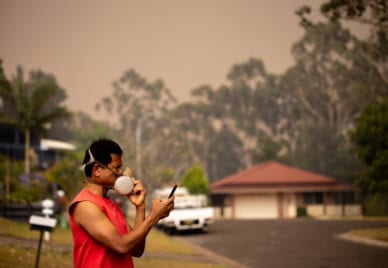
Aggregating and Integrating Data on Health Outcomes Associated with Bushfires at a National Scale
Exploreabout Aggregating and Integrating Data on Health Outcomes Associated with Bushfires at a National Scale
The project set out to drive the integration of large DNA sequencing datasets that describe the composition and function of Australian marine microbial assemblages, with oceanographic datasets that describe the form and dynamics of Australian ocean ecosystems.
Integrating these very different data types will accelerate our understanding of how changing environmental conditions drive the microbial processes that sustain the planet, while giving non-microbial researchers direct access to key microbial insights that will enhance modelling of ecological and biogeochemical processes.
The Microbial Ocean Atlas project involves 4 elements:
Access the Microbial Ocean Atlas.
Researchers, research organisations and state and federal government agencies will benefit from the project’s core features: